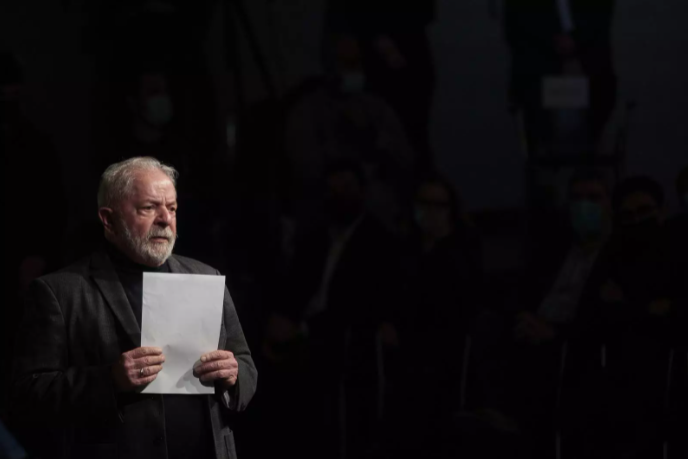The wind is blowing in favor of former president Lula’s efforts to return to power. What is not known is whether such upwind will take him to a safe port or whether he will be swallowed up by the storms on the way. What is certain is that, even if he reaches the desired destination, the disembarkation of the crew on dry land presents challenges that cannot be neglected.
Until now, the Workers’ Party (PT) has never been a party of broad fronts, because it was constituted as a de facto front, to overcome the old Brazilian communism, represented by the Brazilian Communist Party (PCB). On this path, which began in 1979, trade unionists, liberation theologians, dissident communists, and ecologists grouped around a radical discourse for the overthrow of the military dictatorship, which was overcome through the vote in a negotiated transition, led by the Brazilian Democratic Movement (MDB), which PT qualified as “bourgeois”.
Governments without programmatic commitments
Since then, PT has bet on “the worse, the better” until the 2002 election campaign, when changing discourse allowed it to win the presidency without making programmatic commitments to serious allies in parliament. Preferring to navigate through the clumsy interests of Brazilian politics, the Lula administration ended up in the Mensalão and Petrolão scandals.
The alliance with the Brazilian Democratic Movement Party (PMDB) and the Progressive Party (PP) not only was incapable of diverting PT from the path of buying off the right-wing benches to remedy its legislative minority but also gave it the strength to deepen this practice.
For what reasons, then, should we bet on the current conversion of Lulopetism (a term created by merging Lula and PT) to the broad front? One answer comes from sociologist Luiz Werneck Vianna, a prominent name in the democratic left intelligentsia. For him, “a new opportunity” opens up “in the face of the exceptional framework in which the country lives,” referring to the pandemic economic-social disaster and the way Bolsonaro’s government has tried to take advantage of the situation to impose a discretionary regime.
In this context, for Werneck Vianna, the Lula-Alckmin alliance would be “a Brazilianized formula of the Portuguese geringonça,” uniting “the experiences of social democracy among us”. In this way, a political front capable of confronting the far-right would be formed, now allied with the huge Center – a bloc “in social and political control of the mass of latecomers of Brazilian modernization,” which is projected from “the interests emerging from agribusiness and the financial elites” (two modern sectors, by the way).
The problem with this proposition is that such privileges were not only not openly confronted by the Brazilian Social Democracy Party (PSDB) in its 8 years in power, but they were strengthened during the 13 years of the PT governments. The Operation Car Wash attested to this when it brought such practices to light in processes sanctioned by the Brazilian judicial system, although repeatedly denied by the PT leaders. Its annulment corresponds to a series of legal casuistry, far from true constitutional guarantees.
It cannot be ruled out, obviously, that the hardships experienced by our social democracy tupiniquim (refers to Brazilian or national) including the 2013 revolt, have not taught its leaders something. However, the circumstances and the method of construction of this supposed broad front around Lula, which Werneck Vianna believes is capable of “rescuing the best promises that we have cultivated throughout our trajectory,” are not at all promising.
In the first place, for being marked by Lula’s immediate electoral interest in ending the election in the first round, which would relieve him of greater programmatic commitments in the second round. Secondly, it revolves around the charismatic leadership of the former president, who would become the supreme arbiter of the emerging geringonça.
Another response, in the same direction, comes from the (few) signatories of the manifesto “Movement for Brazil”, articulated by a branch of the Rede Sustentabilidade (Sustainability Network). Characterizing the coming election as a “plebiscite”, this group asserts that “there is no doubt that history is making Lula represent the alternative that Brazil should embrace” because of the “successes of his two governments and the willingness to build a broad programmatic front”.
This perception is based not only on forgetting the mistakes made during Lula’s two governments and Dilma’s government and a half – whose paternity is undeniable – but also on a naïve confidence in a mere willingness, without an effective basis in institutional practices of agreements and dialogues.
The only programmatic articulation promoted by PT is taking place around the formation of a federation with the Brazilian Socialist Party (PSB), the Brazilian Communist Party (PC do B) Green Party (PV), until now strongly marked by the mere mathematics of the number of municipalities governed by each party. This shows the failure of the left to fly over the swamp that the Brazilian party-parliamentary system has become.
Necessary but improbable ruptures
But not everyone is lulled into this siren song. An important media recently sustained in its editorial that “the demagogic irresponsibility” prevailing for 20 years in the country, “except (…) Michel Temer’s government”, meant the “retreat and destruction of the future” that culminated in the Bolsonarism and the lulopetism re-created. The latter’s promise of “reconstruction and transformation of Brazil” is not supported by the persistence in denying the need for reforms postponed during the whole period it was in power.
While we may disagree with the mainstream media about the nature of the reforms the country needs, we agree that “Lula is not willing to do the hard work of promoting legislative changes that are structural, politically difficult, and require going against the interests of organized sectors”.
To the despair of those who continue to bet on a democratic rupture with the financial neo-patrimonial order, which extorts the present and steals the future of Brazil, it is most likely that Lula and the Workers’ Party will continue bent on restoring the (unsustainable) equilibrium of the New Republic, whose corpse resists lowering to the grave.
Translated from Spanish by Janaína Ruviaro da Silva













